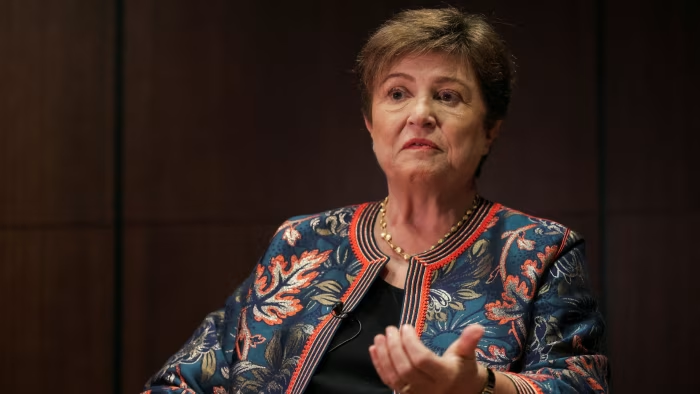The International Monetary Fund (IMF) has cautioned that Donald Trump’s proposed trade tariffs are fueling global economic uncertainty and driving up long-term borrowing costs, potentially exacerbating pressures on the global economy in 2025.
IMF Managing Director Kristalina Georgieva, speaking to reporters in Washington, highlighted the unpredictability of U.S. trade policies as a significant factor contributing to global financial instability. “That uncertainty is actually expressed globally through higher long-term interest rates,” Georgieva stated, while noting that short-term interest rates have declined.
Reelected to the White House, Trump has vowed to implement steep tariffs on imports, including a blanket 20% tariff on all goods entering the U.S. He has also threatened specific measures, such as a 25% tariff on goods from Canada and Mexico—America’s largest trading partners—and an additional 10% tariff on Chinese imports.
These proposed tariffs have raised fears of a new era of global trade wars. U.S. allies are watching closely to see whether Trump will enforce these blanket tariffs immediately after his inauguration on January 20 or adopt a more targeted approach that affects specific sectors.
Georgieva emphasized that the potential fallout of Trump’s trade policies would disproportionately affect countries heavily integrated into the global supply chain, particularly in Asia. Beyond trade, there is global interest in the broader economic policy agenda of the incoming administration, including potential tax reforms and deregulation.
Previewing the IMF’s forthcoming World Economic Outlook for 2025, Georgieva noted that while global growth remains steady, regional disparities persist. The U.S. economy has outperformed expectations, while growth in the European Union is showing signs of stalling.
China faces deflationary pressures and challenges in domestic demand, according to Georgieva. Meanwhile, low-income countries remain vulnerable, with any new economic shocks likely to have significant negative impacts.
“In 2025, countries are still grappling with the legacy of high borrowing during Covid-19,” Georgieva said, stressing the need for fiscal consolidation to place public debt on a sustainable trajectory. “It has proven very difficult for fiscal policy to act promptly, given public sentiments, and that takes us to what is our main challenge at the fund—tackling this low growth, high debt conundrum.”
Georgieva also commented on the state of the U.S. economy, noting that inflation is nearing the Federal Reserve’s target, supported by a robust jobs market. She suggested the Federal Reserve could take a cautious approach, waiting for further data before considering additional interest rate cuts.
As the global economy faces a critical year, the IMF underscores the importance of measured and predictable policy decisions to mitigate uncertainty and foster stability in a challenging environment.
Read Also: UK borrowing costs hit 15-year high under Labour Govt

